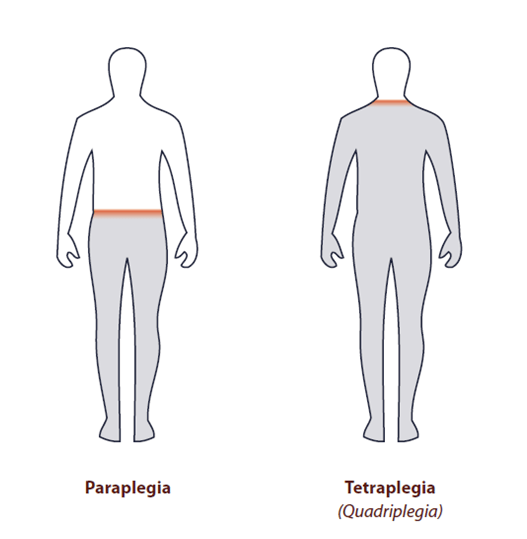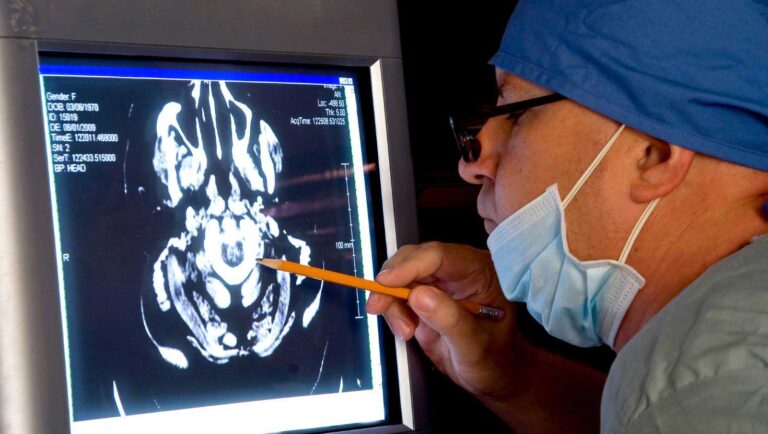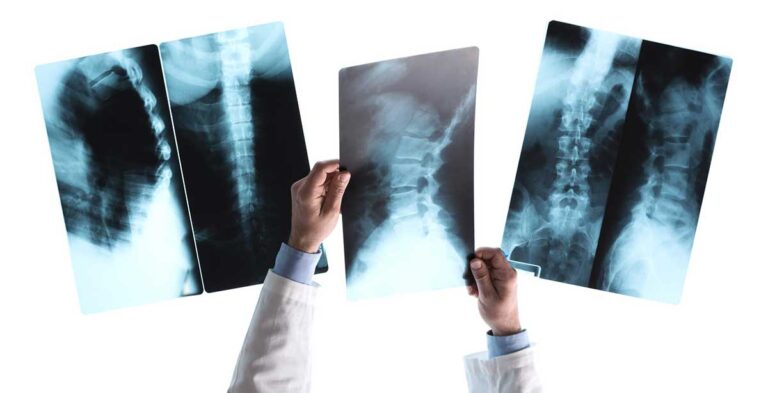Paraplegia and Tetraplegia (Quadriplegia) – How family members can help
Motor Vehicle Accidents are a prevalent cause of serious spinal cord injuries, often leading to the life-changing conditions of Paraplegia and Tetraplegia. These catastrophic injuries occur when the delicate spinal cord, a critical component of the body’s central nervous system, sustains trauma during an MVA.
Paraplegia and Tetraplegia (also called Quadriplegia) are two severe forms of paralysis that can result from a Spinal Cord Injury. Paraplegia consists of paralysis from the waist down (loss of sensation and movement in the legs), which is usually caused by an injury to the lower back. Tetraplegia is paralysis from the neck down (including arms, legs and the torso), which results from an injury to the neck.

Spinal cord injuries can present different symptoms based on the location and the severity of the injury. Symptoms may include pain, numbness or a complete loss of sensation in the affected areas. In some cases, muscles may move uncontrollably, become weak, or completely unresponsive.
The rehabilitation process is different for everyone and must be adapted to each person’s needs. Having a good support system, like the help from a family member, can be extremely helpful.
How can I help a family member during their rehabilitation?
One of the most important things you can do for yourself (or a family member who has suffered a Spinal Cord Injury) is to establish a good support system as soon as possible. In addition to doctors and health professionals, your support system should include a legal team that will provide you with the best and most up-to-date legal advice.
There are some things that family members need to keep in mind during the rehabilitation process:
- Never give up hope.
- Maintain a journal and keep accurate records of all your experiences and changes you observe with your loved one.
- Include your loved one in discussions and activities.
- Communicate and advocate.
- Take time to care for yourself.
Having a strong support system, especially from family members, is crucial for individuals undergoing rehabilitation after a Spinal Cord Injury.
Here are some ways family members can help during this challenging time:
1. Depression/Anxiety – Studies show that individuals with SCI in Canada experience higher rates of anxiety and depression than the general population. (Rick Hansen Institute)
2. Family involvement and support have a significant positive impact on the psychological well-being of those with SCI. (Spinal Cord Injury Ontario)
3. Documenting Progress and Changes:
- Keeping records and maintaining a journal of experiences and observations can aid in tracking progress and identifying areas of improvement during rehabilitation. (Spinal Cord Injury Ontario)
4. Inclusive Communication and Participation:
- Encouraging open discussions and involving the individual with SCI in decision-making can foster a sense of empowerment and autonomy. (Rick Hansen Institute)
5. Advocacy and Access to Legal Resources:
- Engaging with a legal team experienced in Spinal Cord Injury cases can ensure the family’s rights are protected and proper compensation is obtained, which is especially important in Canada’s legal framework. (Rick Hansen Institute)
6. Self-Care for Family Members:
- Providing care for someone with SCI can be physically and emotionally demanding, emphasizing the importance of self-care and seeking support when needed. (Spinal Cord Injury Ontario)
See Types of Spinal Cord Injuries
Read our blog at: https://clginjurylaw.ca/types-of-spinal-cord-injury
Click HereParaplegia and Tetraplegia resulting from Spinal Cord Injuries have a profound impact on individuals and their families in Canada. By understanding the Canadian statistics and adopting coping strategies, family members can play a vital role in helping their loved ones navigate the challenges posed by these conditions and contribute to a more successful rehabilitation journey.
Helping Injured Clients
Are you or a loved one suffering from a spinal cord injury? For over 35 years, CLG Injury Lawyers have helped thousands of injured clients. We fight for your rights to receive the maximum compensation you deserve. Providing you the Peace of Mind to focus on your Road to Recovery. Our experienced personal injury lawyers offer a free, no obligation case evaluation.
To find out more about SCIs go to our Spinal Cord Injury Page or Contact Us today to talk to one of compassionate lawyers to see how we can help you.
For more articles and safety tips, go to https://clginjurylaw.ca/blog/ or subscribe to our newsletter.








